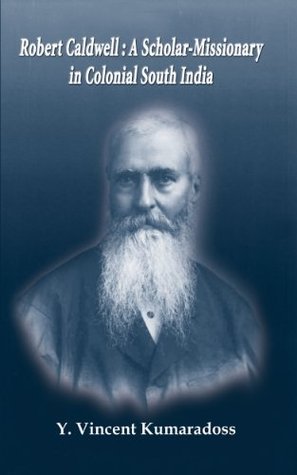


In the late 19th century, missionary Robert Caldwell propagated the idea that Brahmins were evil north Indian invaders who oppressed the "pure Dravidian race" in South India. This false equation gained traction among other scholars and even the Governor of Madras, Mountstuart Elphinstone Grant Duff, who used it to launch a hate speech against Brahmins. However, recent studies have revealed Caldwell's biased scholarship and tall claims, further exposing the deep-rooted prejudice against Brahmins in South India.
The Dravidian Movement: A History of Prejudice and Misinformation
The Dravidian movement, which emerged in South India in the late 19th century, was a social and political movement that sought to uplift the Dravidian people, who were believed to be the original inhabitants of the region. While the movement initially had legitimate grievances concerning the dominance of Brahmins in society, it was marred by a false narrative that pitted the Dravidians against the Aryans, a mythical race of north Indian invaders.
Origins and Evolution of the Dravidian Myth
The idea of a Dravidian race distinct from the Aryans can be traced back to the early 19th century. Missionaries such as Robert Caldwell and linguists like T. Burrow proposed that the Dravidian languages, spoken in southern India, were unrelated to the Indo-Aryan languages of the north. This linguistic distinction was erroneously interpreted as evidence of a separate racial identity.
In the late 19th century, Caldwell's ideas gained traction among Tamil nationalists who sought to assert their cultural and political autonomy. They propagated the belief that the Brahmins, who were primarily vegetarian, fair-skinned, and spoke Sanskrit, were not true Dravidians but outsiders who had oppressed the "pure Dravidian" race.
The Rise and Fall of the Anti-Brahmin Movement
The anti-Brahmin sentiment reached its peak in the early 20th century. Political leaders such as E. V. Ramasamy (Periyar), who founded the Dravida Kazhagam party, used the Dravidian-Aryan myth to incite hatred against Brahmins. They accused them of being exploiters, priests, and impediments to social progress.
In 1956, the Madras Presidency was reorganized along linguistic lines, with the Dravidian-majority regions forming a separate state called Tamil Nadu. This political victory gave further impetus to the anti-Brahmin movement, which continued to dominate Tamil Nadu politics for decades.
Discrediting the Dravidian Myth
Recent scholarship has thoroughly debunked the Dravidian-Aryan myth. Archaeological, linguistic, and historical evidence suggests that there is no clear-cut racial divide between the people of North and South India. Moreover, the Dravidian languages have strong influences from Indo-Aryan languages, indicating cultural exchange and interaction over centuries.
The false equation between Brahmins and Aryans has perpetuated deep-rooted prejudice against Brahmins in South India. However, with the discrediting of the Dravidian myth, there is a growing awareness that it was a politically motivated construct that has no basis in reality.
Top 5 FAQs and Answers on the Dravidian Movement
1. Who is responsible for creating the Dravidian-Aryan myth? A: Missionaries like Robert Caldwell and linguists like T. Burrow.
2. What is the basis of the Dravidian-Aryan divide? A: Linguistic differences between Dravidian and Indo-Aryan languages, erroneously interpreted as racial distinctions.
3. Who used the Dravidian-Aryan myth to incite hatred against Brahmins? A: Political leaders such as E. V. Ramasamy (Periyar).
4. What is the current status of the Dravidian myth? A: Thoroughly discredited by recent scholarship.
5. What are the implications of the Dravidian-Aryan myth? A: Perpetuated prejudice and discrimination against Brahmins in South India.

In a bid to promote integrity and fight against corruption, the Central Vigilance Commission has declared the observation of 'Vigilance Awareness Week' with the theme 'Our Shared Responsibility'. Health Minister JP Nadda, during the launch, stressed the need for institutionalizing ethical practices and building a culture of vigilance in every level of governance. He also urged for creating a checklist of do's and don'ts in simple terms to prevent unintentional wrongdoings.

Delhi Environment Minister Manjinder Singh Sirsa chaired a meeting to discuss ways to control dust pollution from construction activities in the city. He revealed that an extensive campaign has been launched to monitor and penalize illegal and unregistered construction projects. The Minister also directed officials to expedite field actions and simplify the registration process to ensure timely intervention against polluters.

In a press conference held in New Delhi, the Election Commission has announced phase two of special intensive revision of electoral rolls in 12 states. This comes after political parties raised concerns about the quality of the rolls. While Tamil Nadu Chief Minister MK Stalin arrived at DMK headquarters to discuss the issue, Assam's electoral roll revision will be announced separately due to the ongoing process of the National Register of Citizens. The EC has assured that there will be no obstacles in implementing the roll clean-up exercise in West Bengal.

President Droupadi Murmu addressed probationers of the Indian Police Service 77 RR (2024 batch) and emphasized the significant role that effective policing and future-ready technology play in promoting growth and attracting investment in any state. She highlighted the transformational impact of technology in the realm of policing and urged young officers to remain ahead in adopting new technologies, including AI, to combat threats to citizens. The President also encouraged ethical decision-making and accountability among young officers occupying positions of power and authority.

CEC Gyanesh Kumar has announced the second phase of the Special Intensive Revision (SIR) of electoral rolls in 12 states and Union Territories, covering 51 crore voters. He also addressed concerns over the state of West Bengal, clarifying that there is no confrontation between the Election Commission and the state government. Additionally, he reminded that Aadhaar card is not proof of citizenship, but can be used as identity proof in the SIR process.

After Chief Justice Gavai's formal recommendation, Union Government is set to appoint Justice Surya Kant as the next Chief Justice of India. With a distinguished legal career and key institutional roles, Justice Kant is highly regarded for his commitment to electoral transparency and landmark verdicts on various issues including abrogation of Article 370 and free speech. His term is expected to begin on November 24, 2025, and last for approximately 15 months.

On Monday, Union Home Minister Amit Shah inaugurated the fourth edition of the India Maritime Week 2025, where renowned leaders, policymakers, and maritime experts from India and abroad are expected to participate over the next 5 days. In his keynote speech, Shah highlighted India's growing maritime strength and strategic location, citing the government's efforts to increase port handling capacity and develop new mega and deep-draft ports. He also inaugurated state-of-the-art Deep-Sea Fishing Vessels under the Pradhan Mantri Matsya Sampada Yojna at Mumbai's Mazagaon Dock. The event, organised by the Ministry of Ports, Shipping and Waterways, is being held in partnership with the Indian Ports Association and will conclude on October 31.

The annual Chhath Puja festival has once again become a battleground for Delhi's political parties, with the AAP accusing the BJP-led government of creating an "artificial Yamuna" to cater to PM Modi's ceremonial dip while ordinary devotees are forced to pray in the highly-polluted river. While AAP leaders criticize BJP for disregarding the sentiments of devotees, the latter defends their preparations, citing "unprecedented arrangements" for the festival. However, as the parties argue, environmental reports continue to warn about the dangerous levels of pollution in the Yamuna, posing a serious threat to the health of devotees.

Prime Minister Narendra Modi took to social media to share his Diwali celebration on board the INS Vikrant with the Indian Navy. He expressed his gratitude for the opportunity and highlighted the juxtaposition of the vast ocean and Mother India's brave soldiers. The Prime Minister also witnessed an impressive Air Power Demo and participated in the Bara Khana with naval personnel.

The Mahadev Khola Dham Welfare Trust in Meghalaya has accused local authorities of violating the rights of the Hindu community during Diwali celebrations. The Trust claims that an order issued by the Deputy Commissioner of East Khasi Hills, ordering the closure of a shop selling puja materials, infringes on their constitutional rights. The Trust, which has been a place of worship for over a century, argues that this order was made without proper notice or verification and goes against earlier permission granted for the shop to operate during the festival. They have appealed for the withdrawal of the order and the safeguarding of their religious and cultural heritage.